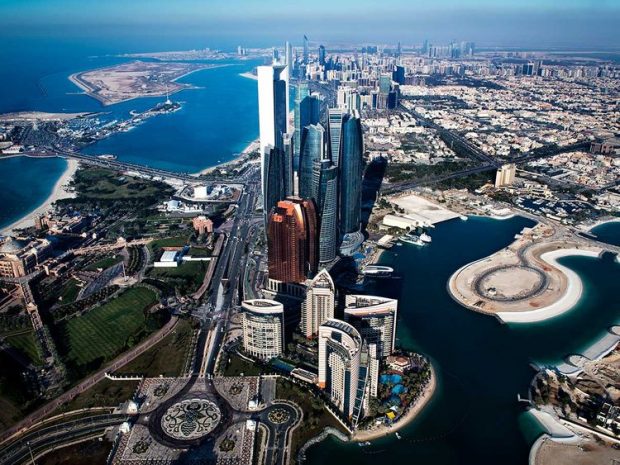
Saudi Arabia, United Arab Emirates join coalition to protect maritime trade

Abu Dhabi: The United Arab Emirates on Thursday announced it has joined the International Maritime Security Construct (IMSC), an international alliance that aims “to protect the safety of maritime navigation and international trade.”
The announcement was made one day after Saudi Arabia became the second Arab country to join the coalition.
Bahrain, host to the U.S. Navy’s Fifth Fleet, last month became the first Arab and Gulf country to announce officially that it would join a U.S.-led maritime coalition “to ensure freedom of navigation in the Gulf.”
In the UAE capital Abu Dhabi, Salem Mohammed Al Zaabi, Director of the International Security Cooperation Department at the Ministry of Foreign Affairs and International Cooperation, said that the UAE’s accession to the alliance comes in support of regional and international efforts to deter threats to maritime navigation and global trade.
The UAE’s accession is also in order to secure the flow of energy supplies to the global economy and to contribute to the maintenance of international peace and security, he said.
“The alliance protects the interests of its members and their merchant ships when passing through maritime corridors. Its operation area covers the Strait of Hormuz, Bab Al Mandab, the Sea of Oman and the Arabian Gulf.”
On September 18, Saudi Arabia said it was joining the IMSC that aims to protect commercial vessels by ensuring the right of the freedom of navigation, provide safety for international trade, and protect the interests of allied countries, a Saudi Defense Ministry official has said.
The Saudi decision to participate is based on its declared support for regional and international efforts to deter threats to maritime safety, the Saudi Press Agency (SPA) reported.
The Kingdom will work with its allies to ensure the security of energy routes and the continued flow of supplies to the global economy, and to maintain international peace and security, the official added.
Bahrain last month said it was joining the maritime coalition to “participate in the joint effort to preserve the safety of international maritime navigation and secure international corridors for trade and energy in the region.”
Bahrain said it was a “duty to preserve the safety of maritime navigation and secure international corridors for trade and energy.”
In July, the Central Command said it was developing “a multinational maritime effort, Operation Sentinel, to increase surveillance of, and security in, key waterways in the Middle East to ensure freedom of navigation in light of recent events in the Arabian Gulf region.”
“The goal of Operation Sentinel is to promote maritime stability, ensure safe passage, and de-escalate tensions in international waters throughout the Arabian Gulf, Strait of Hormuz, the Bab el-Mandeb Strait (BAM) and the Gulf of Oman,” the Central Command said.
“This maritime security framework will enable nations to provide escort to their flagged vessels while taking advantage of the cooperation of participating nations for coordination and enhanced maritime domain awareness and surveillance.”
Stressing that the United States has committed to supporting the initiative, the Central Command said that contributions and leadership from regional and international partners would be required to succeed.
U.S. officials have been coordinating on Operation Sentinel with allies and partners in Europe, Asia, and the Middle East. Details touched on the nature of deployments, ports for naval presence and the mandate.
The United Kingdom has already joined the U.S. effort and beefed up its presence in the Gulf.


